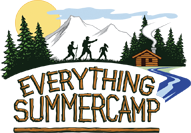
Hey there, Summer camp Folks!
‘Where there's smoke, there's fire.’ The roots of this phrase date back to ancient times, with its first recorded use dating all the way back to 43 B.C. That's over 2,000 years ago! But it truly gained popularity in the 16th century, and since then, it's become a common saying in the English language. Smoke, being the cloudy gray or black mixture of air and carbon that comes from something when it’s burning, is most often directly related to fire that it’s a natural assumption that if you see one the other is present.
In the literal sense, it's true that where there's fire, you'll likely see smoke. But when we use this phrase in everyday conversations, we're not talking about actual smoke or actual flames. It’s a metaphorical phrase. It's a way of saying that if there's any suspicion or evidence of something, there's a good chance it's true.

FIRE SAFETY
Campfires are a cherished tradition at summer camp. Put yourself in the shoes of a summer camper, sitting around a roaring fire, roasting marshmallows, and entertaining one another with stories. Summer camp is all about building friendships, having fun, and learning valuable life lessons. But it's also about the responsibility of taking the appropriate measures for safety.
They provide warmth, light, and a sense of togetherness. However, they also come with a set of rules and responsibilities. One of the fundamental lessons you'll learn at summer camp is fire safety. You'll discover how to build and maintain a campfire safely, ensuring that the flames stay where they belong—in the fire pit. Camp counselors and staff will teach you the importance of fire safety rules and how to prevent accidents.
Beyond the Flames
Embrace the responsibility of campfire safety, but also carry this lesson with you beyond the campfire circle. This phrase isn't just about campfires. It's a valuable life lesson. It reminds us to pay attention to the signs and take action when something seems suspicious or wrong. Trust your instincts, look out for one another, and always seek the truth. Whether it's a situation at camp, school, or in your everyday life, this phrase encourages you to trust your instincts and seek the truth.
Remember the wisdom behind this age-old phrase that gives us truth in an everyday observation and take it with you on your summer adventures and all others throughout your life. Thanks for reading, Everybody and, as always, Happy Camping!
- John










